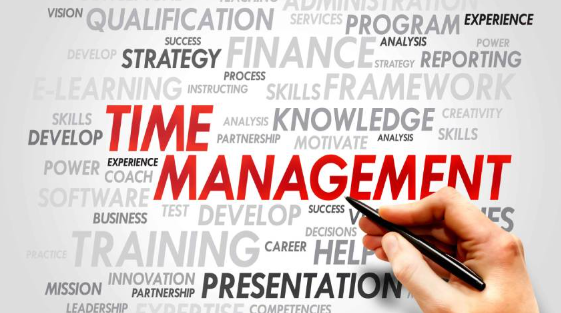Call center agents typically handle more than 4,400 calls each month. This shows why being efficient is very important in call centers. Good time management is not just a good idea; it’s a must for keeping things running smoothly and making customers happy. A short delay in one call can affect many others, showing why it’s crucial to manage time well.
Using good time management methods can really help increase productivity. It also makes agents happier and keeps them from leaving their jobs. On the other hand, bad time management can cause agents to feel too stressed, leave their jobs, and lead to losing money.
Managing time well means knowing what tasks are most important and planning your day with a to-do list. Agents should focus on what’s urgent and important. They should avoid taking on too much to prevent stress.
It’s also important for agents to take short breaks often. Breaks help keep productivity up and make decision-making better. Using tools that help with tasks like saving data and watching calls can make work a lot easier.
The Importance of Time Management in Call Centers
Managing time well in call centers is key for a smooth operation. It helps deal with many calls efficiently. Good management makes customers happy by giving quick answers and solutions.
Handling High Call Volumes Efficiently
Without good time management, call centers face long wait times when many people call. This can disappoint customers. Using smart time management helps agents answer more calls faster. This cuts down on waiting and makes customers happy.
Impact on Customer Satisfaction
Bad time management leads to longer calls and frustrated customers. This can make more people hang up and lower service quality. But, managing well means solving problems fast. This makes customers trust and enjoy the service more.
Benefits of Effective Time Management
Good time management helps beyond just making customers happy. It makes agents more productive and process smoother. Keeping up with SLAs needs good management. It also creates a better workplace, lowering stress.
Using new tech and setting real goals can make call centers work better. Coaching helps keep agents motivated for improvement. This all leads to better time management and service.
Using good workforce strategies helps plan better based on call forecasts. Focusing on time maximizes benefits and keeps performance high.
Adjusting Schedules Based on Call Volume Trends
Optimizing call centers means changing agent work times according to call trends. Knowing the number of calls helps staff correctly and boosts performance. It’s key to a call center’s success.
Data Collection
Gathering data is key to understand call trends. Agents get over 4,400 calls each month. So, collecting this info is crucial for spotting busy times. By always watching these trends, we can guess when it’ll get busy. This helps schedule the right number of agents.
Software Utilization
Using smart scheduling tools is vital for better staffing. These tools match staff levels to expected calls and streamline tasks. Assembled, for example, suggests work times by predicting call volumes. This makes planning easier and improves work and customer happiness.
Flexible Scheduling
Being able to change schedules on the fly is crucial. It lets us quickly manage unexpected call spikes. About 70% of agents prefer to work from home, showing the need for flexible schedules. It caters to agent needs and raises staffing efficiency.
Ongoing Review
Regularly checking how scheduling works ensures it’s still effective. Reviewing data and software reports helps fine-tune work times. Making sure agents know about schedule changes keeps up their morale. Along with ongoing training, it prepares agents for changes in call volume.
Making Use of Tools and Software
Using advanced tools and software boosts call center operations. They help automate tasks, increase accuracy, and better customer service.
Identifying Needs
First, figure out what the call center needs. See where tools could save time or cut mistakes. Picking the right software helps meet your goals.
Research and Selection
After knowing the needs, research to find the best tools. Find software that fits well with what you already have. It should also be easy for agents to use. Tools like IVR can help handle more calls, especially since calls went up a lot at the start of the pandemic.
Trial and Training
Test new tools first before using them fully. Make sure agents learn how to use them well. Good training keeps agents ready and skilled.
Gradual Implementation
Add the new software slowly to avoid problems. This way, you can fix issues fast and adjust as needed.
Monitoring and Adjusting
Keep an eye on things after you start using the new tools. Check on call volume, call times, and how customers feel. Use this info to make the tools work even better for everyone.
Implementing Strategic Call Routing
Strategic call routing greatly improves how calls are handled. It makes sure customers talk to the right agents. This system enhances call center performance and customer happiness.
Assessing Agent Skills and Availability
Call centers need to evaluate agent skills and workload. This helps in assigning calls to those most able to solve them quickly. It boosts the chances of solving issues on the first call.
Choosing the Right Software
Choosing good software is key for call routing. The best systems match calls and agents smartly. They help call centers work better and cut costs.
Defining Routing Rules
Setting clear rules for call routing is crucial after getting software. Rules are based on skills, availability, and how agents perform. Good rules connect customers with the best agents, improving service.
Training Your Team
Agents need training to use call routing well. They must understand the software and rules. Keeping them updated with training ensures they match well with customers.
Monitoring and Optimization
Monitoring the system closely is the last step. Looking at customer satisfaction and resolution rates helps. Regular updates keep the system serving customers well.
Time Management Training for Agents
Training call center agents in time management boosts productivity and ensures top-notch customer service. We explore the important skills, benefits, and how to start effective time management training programs.
Key Skills to Focus On
Time management training teaches agents to prioritize tasks, set goals, and manage interruptions well. By learning to be efficient, agents can handle more calls and multitask better. These skills help agents thrive in a fast-paced call center.
Benefits of Training Programs
Time management training brings many advantages to call centers. It helps agents feel more in control and happier at work. Also, it reduces the time spent on each call, improves customer happiness, and boosts productivity.
Implementing Training Programs
To start a time management training program, identify the key skills first. Then, create training modules that are engaging and interactive. Using data and AI helps focus the training on common problems customers face.
Keep training ongoing and encourage learning from peers. This strengthens the skills, creating a culture of continuous improvement and agent empowerment.
This strategic approach to training helps call centers improve their agents’ skills. It leads to better productivity and customer satisfaction in the long run.
Prioritizing Tasks Effectively
Efficiency in call centers is all about how well everyone can prioritize. Having a task list helps keep things in order. This is key, especially since 74% of call center workers could burn out.
Knowing which tasks matter most is vital. For example, a lot of customer questions are about where their order is. Using tools like the Eisenhower Matrix can help figure out what to do first.
AI is changing how tasks are managed. It can handle most customer chats. This gives agents more time for tougher issues. Tools like ChatGPT also help by doing things like grammar checks and creating schedules.
An omnichannel approach makes everything smoother. It puts all support channels together in one place. This helps agents deal with important tasks faster and more clearly.
Setting goals helps agents use their time wisely. With high turnover rates in customer service, it’s vital to have a good task system. This makes the workplace less chaotic and keeps workers happier for longer.
Taking breaks and balancing work and life are crucial. Nearly all employers agree breaks boost productivity. Managing tasks and time well leads to happier, more effective call center agents.
Taking Regular Breaks
Regular breaks help call center agents work better and feel happier. A planned break schedule promotes health and keeps employees focused. It’s a strong way to support their well-being at work.
Importance of Breaks
They let agents relax, which is key in fast-paced call centers. Managers should set clear break times to help agents refresh.
Short, Frequent Breaks
Quick, regular breaks are important for thinking clearly and avoiding burnout. They should be short pauses for agents to regain focus. This makes dealing with customers better and less stressful.
Benefits for Mental and Physical Health
Breaks are good for agent’s health and work quality. They should have time for themselves and work tasks. Prioritizing breaks helps call centers do well and make fewer mistakes from tiredness.
Utilizing Productive Tools
Call centers can get better when they use good productivity tools. They make work easier for everyone and improve how customers feel. With the right software, tasks that happen again and again can get done by computers. This lets agents focus on the hard stuff that needs a person’s touch. It helps the whole organization do better.
Tools like CRM systems and advanced dialers are very helpful. They fit right into the way work is already done. They let agents see everything about a customer, making it quicker to handle questions. By letting computers do the easy work, agents save time. This also means fewer mistakes.
These tools also help save money on each call and let agents do more. They make sure that call centers use their resources well. They also help with important things like fixing problems on the first call and not letting calls drop. This makes workers and customers happier.
For a call center to keep up in a fast-moving world, investing in these tools is key. More people today want to use digital ways to talk. Call centers need tools that help talk across many channels, check on quality, and show how things are going. This helps them keep their promises to customers. It leads to doing better all around.
Conclusion
Managing time in a call center is more than just a skill. It’s a strategy that touches everything. Having strong plans for scheduling and task priorities is key to doing well. At times, agents do a lot of routine tasks, so making these tasks automatic can really help.
By using tools like Robotic Process Automation (RPA), call centers can save a lot of time. Canned responses also help with quick replies to common customer problems. Keeping an eye on how long it takes to handle calls can show where to get better.
Offering self-service options lets customers help themselves. This lets agents work on harder issues. Good communication, knowing who’s best for each task, and being ready to help can lower the need for support. These steps help call centers keep getting better and do well.
To keep up good work, it’s important to have understanding agents and a team that works well together. Providing constant training and feedback makes agents better. By adopting these smart strategies, call centers work more smoothly and keep customers happy.
FAQ
How can call center agents manage high call volumes efficiently?
Planning the day and putting tasks in order can help agents handle more calls. They can use special software to better match staff levels with call volumes.
What impact does time management have on customer satisfaction?
Managing time well means customers wait less and get help faster. This makes customers happier with the service they get.
What are the benefits of effective time management in call centers?
Managing time well leads to more work getting done and happier customers. Agents feel better, stay longer, and are not so stressed. This saves money and reduces mistakes, too.
How can data collection influence call volume management?
Looking at past call data shows when it gets busy. Knowing this, call centers can have enough agents ready for those times. This makes things run smoother.
What role does software play in managing call center schedules?
Software helps plan agent schedules around expected call numbers. It can change plans quickly if more or fewer calls come in.
Why is it important to continuously review scheduling strategies?
Checking schedules often keeps them working well. Regular checks find ways to improve and keep workflows smooth.
How do automation tools enhance efficiency in call centers?
Automation takes care of simple tasks and helps avoid mistakes. It lets agents spend time on harder calls, improving service.
What steps should be taken when selecting call center software?
Understand what you need, research well, pick software that fits, and test it. Train everyone and keep an eye on how it’s working.
How does strategic call routing improve customer service?
Routing calls smartly sends them to the right agents. This reduces wrong transfers and speeds up service, making customers happier.
What are the key elements of an effective time management training program for agents?
Training should teach agents how to pick what to do first, set goals, and handle drops in work. This makes them more productive and happier at work.
How can breaks impact productivity in a call center?
Regular breaks keep agents sharp and prevent burnout. Good break planning keeps productivity up over time.
What productivity tools are beneficial for call center operations?
Tools like CRM systems and smart dialers make routine work faster. They help everyone focus on more important tasks, improving results and customer relations.

More Posts
12 Essential Questions to Ask Clients for Monthly Feedback
Receiving regular feedback from clients is crucial for understanding their needs and perspectives. The customer service team benefits from collecting customer feedback questions each month, as it helps measure customer satisfaction and gain...
How to improve your productivity through Calendar Blocking?
Every time at the end of the day you sit down and realize that your to-do list has been increasing rather than decreasing. It is one of the worst feelings to see your...
15 Influential Stephen Covey books on Business
Books are the food for your brain! They have all the essential information that you require on any particular topic without any hassle at all. The concept of book reading is quite simple....
12 Important Time Management and Organizational Skills You Should Have
Time management is key for being productive and successful. It's not just about a to-do list. It includes skills that help people meet daily and long-term goals. Time management is important for parents,...



